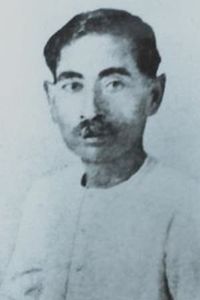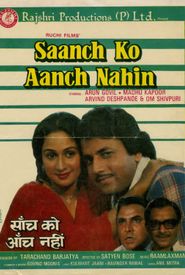Premchand, a towering figure in Hindi literature, is widely regarded as one of the most extraordinary and illustrious literary giants in the entire expanse of Indian literary history, his name synonymous with excellence and mastery. His short stories, a testament to his remarkable literary prowess, serve as a poignant and powerful distillation of the very essence of rural Indian life, presenting a candid and unvarnished portrayal of the harsh realities that existed in Indian villages during his lifetime, a reflection of his unique ability to capture the intricate complexities and nuances of rural existence, and his unwavering commitment to shedding light on the struggles and hardships faced by the common man.
Dhanpat Rai Srivastava, better known by his pen name Premchand, was born on July 31, 1880, in Lamhi, a small village in the United Provinces of Agra and Oudh, British India.
Premchand's literary oeuvre functioned as a powerful mirror, reflecting his profound understanding of the intricate social dynamics that underpinned Indian society, while concurrently serving as a potent catalyst for effecting transformative social change. His remarkable storytelling prowess enabled him to skillfully bring to the fore a range of pressing social concerns, including the distressing plight of child widows, a deeply entrenched cultural practice that had long been a hallmark of Indian society.
Premchand, a pioneering figure, took a bold and courageous step in defying the conventional norms of his time by marrying Shivarani Devi, a young widow, in an era when such unions were widely viewed with disdain and considered taboo by the rigid and oppressive societal structures of India. This daring act not only showcased his unwavering dedication to social reform, but also demonstrated his unshakeable courage in the face of overwhelming opposition, thereby setting a powerful precedent for those who dared to challenge the status quo and strive for positive change.
Premchand's marriage to Shivarani Devi was a daring declaration of independence from the conventional social norms of his era, which regarded child widows as outcasts, shunned them from society, and considered their remarriage to be a grave social transgression. By choosing to marry Shivarani, Premchand not only demonstrated his contempt for the societal norms but also his unwavering commitment to challenging the status quo and advocating for social justice and reform.
Premchand's unwavering bravery in the face of societal expectations was by no means confined to his groundbreaking decision to marry Shivarani Devi, a union that was considered unconventional and even daring at the time. As a prolific and visionary writer, he leveraged his remarkable literary talents to boldly challenge the prevailing social norms and norms, effectively using his words to advocate for progressive social reform.
His remarkable body of work, comprising a diverse array of stories and novels, was not only captivating and engaging, but also intellectually stimulating and thought-provoking, as it frequently tackled and addressed sensitive and pressing issues that were often shrouded in controversy, such as the deeply ingrained practices of child marriage, the taboo of widow remarriage, and the pervasive social inequalities that plagued Indian society during his lifetime.
Premchand's literary endeavors and his union with Shivarani Devi collectively had a profound and lasting influence on Indian society, as he was a stalwart advocate for social change, his unwavering courage and unshakeable conviction serving as a beacon of inspiration that continues to motivate individuals to this very day.
Premchand's remarkable literary heritage is characterized by his unrelenting passion for the art of storytelling, as demonstrated by the staggering number of novels he penned throughout his distinguished literary career, a testament to his unwavering commitment to his craft and his unshakeable dedication to the world of literature.
His literary works were distinguished by a profound capacity to strike a chord with the everyday individual, effectively engaging with a diverse array of social concerns that were highly relevant to the Indian populace during his lifetime.
Premchand's extraordinary talent for creating endearing and believable characters was a defining characteristic of his literary approach, as he skillfully drew inspiration from the intricate tapestry of Indian society, meticulously weaving complex narratives that were at once poignant, thought-provoking, and deeply relatable.
**Next Person Biography:**
Premchand's literary works served as a profound medium for delving into the intricate and multifaceted nature of the everyday lives of ordinary Indians, meticulously capturing the nuances and tribulations of the common man's experiences, and ultimately shedding a piercing light upon the triumphs and tribulations that have shaped the fabric of Indian society.
Premchand's remarkable narrative prowess has successfully enticed readers for generations, a lasting tribute to his stature as a prominent and influential literary figure in India, whose works remain an integral part of the country's cultural heritage and literary canon, continuing to captivate and inspire audiences of all ages with their timeless themes, vivid characters, and masterful storytelling techniques.
Premchand's unassuming demeanor served as a testament to his humility, a trait that was all the more remarkable considering his exceptional success as a writer. When inquired about his life and experiences, he responded with a sense of self-deprecation, downplaying his own achievements and emphasizing the ordinariness of his existence.
"What greatness could I possibly possess," he asked, "that would warrant sharing my story with others? I lead a life that is indistinguishable from millions of others in this country; I am, in fact, ordinary. My existence is also ordinary, marked by the struggles and hardships faced by many. I am a poor school teacher, beset by family troubles and daily struggles. Throughout my lifetime, I have toiled with the hope of eventually breaking free from my sufferings. Alas, I have yet to achieve this goal, and my life remains marked by the same tribulations. What is so extraordinary about my life that it warrants being shared with anyone?"
His words conveyed a sense of humility, a recognition that his life was not extraordinary, but rather a reflection of the struggles and hardships faced by countless others. Despite his remarkable achievements as a writer, Premchand's focus remained on the ordinary, his words a testament to the power of humility and the importance of recognizing the commonalities that unite us all.
This remarkable individual's humble nature and unyielding dedication to his creative endeavors stand as a testament to his remarkable grandeur, and his far-reaching legacy continues to ignite a flame of inspiration within successive generations of authors and readers, leaving an indelible mark on the literary world.















